Hawzah News Agency – The Birth Anniversary of Hazrat Imam Ali (A.S), was celebrated in Ladakh by Anjuman Jamiat ul Ulama Isna Asharia Kargil (AJUIAK) Ladakh, at premises of Hawza Elmiyah Isna Asharia Kargil in which thousands of people participated from Adjoining areas.
On this occasion, Hujatul Islam Wal Muslameen Syed Naseem Ul Hassan Rizvi (Hafiz-e-Nahjul Balagh) was the Special Invitee. The Programme was presided over by President AJUIAK Ladakh Sheikh Nazir Mehdi Mohammadi.
Other Prominent Personalities who witnessed the occasion include Chairman/Chief Executive Councilor LAHDC Kargil Feroz Ahmad Khan, ASP Kargil Iftiqar Chowdhary, Vice President AJUIAK, General Secretary, and other executive members.
On this occasion, Speakers threw Light on the life and history of Hazrat Imam Ali and his contribution to maintaining Law, Justice, and a better Administration System.
Naat Khawain Enthralled the Audiences with their beautiful Recitations of Manqabat on this occasion.
While giving his sermon on this occasion Syed Naseem Ul Hassan Rizvi while talking on this occasion said that Imam Ali (AS), whose birthday is an occasion to celebrate manhood, is respected by both Sunni and Shia Muslims for his honesty, belief, courage, knowledge, loyalty to Prophet Muhammad (PBUH), and for his devotion to Islam. He is considered a symbol of justice and courage.
He was born in Kaaba in Mecca, Arabia (now Saudi Arabia), in 599 AD to Abu Talib, an uncle of Prophet Muhammad (PBUH) and Fatimah Bint Asad.
He was the first man (and the second person after the Prophet’s wife Khadijah) to convert to Islam after Prophet Muhammad (PBUH) received his divine revelation and declared Islam in public based on Allah’s order.
From 610 AD to 622 AD, Imam Ali spent much of his time providing for the needs of believers in Mecca, especially the poor, by distributing what he had among them and helping them with their daily chores.
In 623 AD, the Imam married the Prophet’s daughter Fatimah (SA), who gave birth to Imam Hasan (PBUH) and Imam Hussein (PBUH), the second and third Imams of Shia Muslims.
Imam Ali (PBUH) took part in battles of Badr, Ohud, Khandaq, Khaybar, and many other battles that took place in the early years of Islam.
While returning to Medina from his last pilgrimage in 632 AD, the Prophet made certain statements at Ghadir Khumm about Imam Ali (PBUH). According to both traditions, the Prophet said that Imam Ali (PBUH) was his inheritor and brother and that whoever accepted the Prophet as his mawla (master) should also accept Imam Ali (PBUH) as his mawla.
Imam Ali (PBUH) also collected all the Prophet’s explanations about Qur’an verses and the reasons behind their revelation.
In the time of three caliphs- i.e. Abu Bakr, Umar ibn al-Khattab, and Uthman ibn Affan- Imam Ali (PBUH) had no official place. But in cases, they asked him for any advice which was in the interest of the Islamic community, he did not hesitate.
During his caliphate of nearly four years and nine months, Imam Ali (PBUH) followed, exactly, the way of the Prophet and began many different types of reforms. Naturally, these reforms were against the interests of certain parties that sought their own benefit.
Numerous short sayings of Imam Ali (PBUH) have become part of general Islamic culture and are quoted as aphorisms and proverbs in daily life.
In the 10th century one of the outstanding Shia scholars, Sayyid Sharif al-Raḍi, assembled many of Imam Ali’s sermons, letters, and short sayings dealing with various subjects in the book Nahj al-Balaghah (The Path of Eloquence), which became one of the most widely read and influential books in the Islamic world.
Sheikh Nazir Mehdi Mohammadi while thanking the administration for making adequate arrangements for the smooth conduct of the occasion urged upon the people to imbibe the teachings and way of life of Hazrat Imam Ali A.S for a successful life.
He prayed for Peace and Harmony in the society and development of mankind.
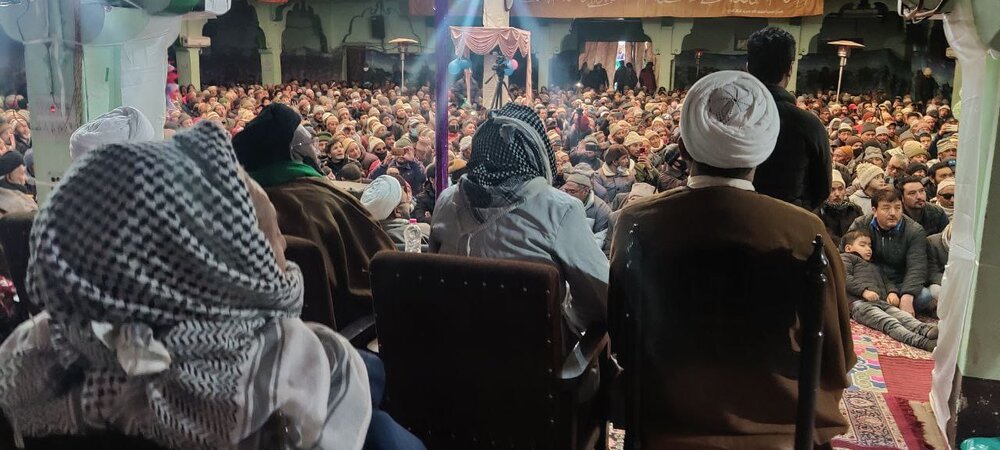
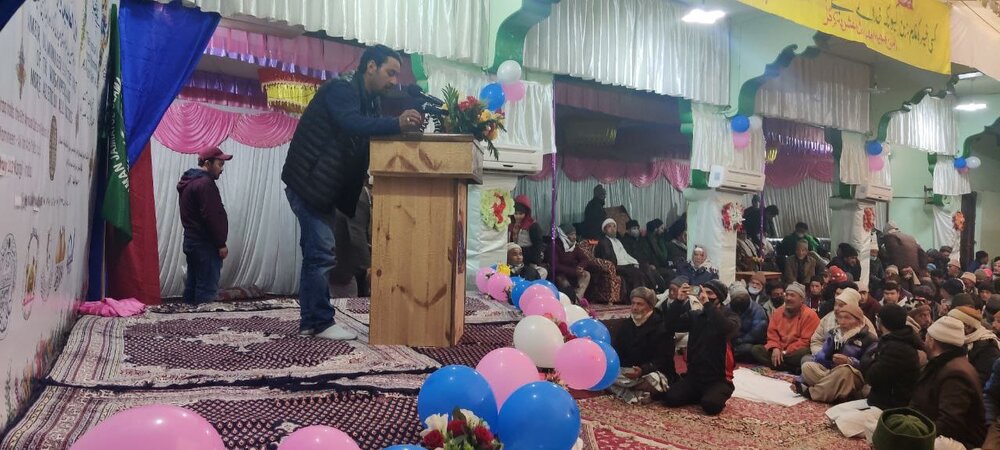
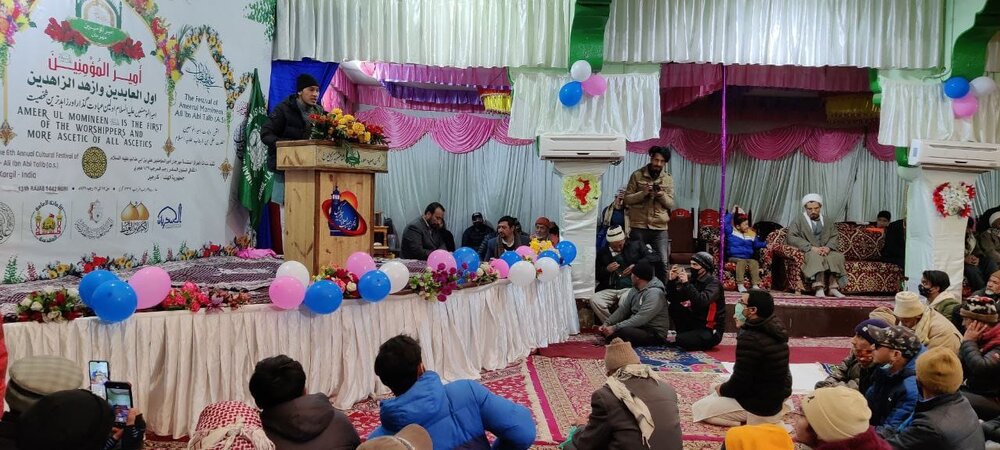
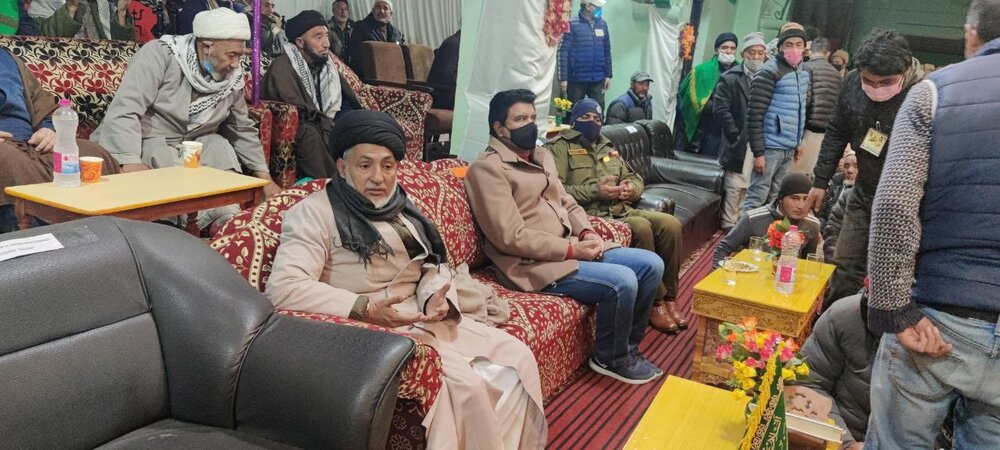
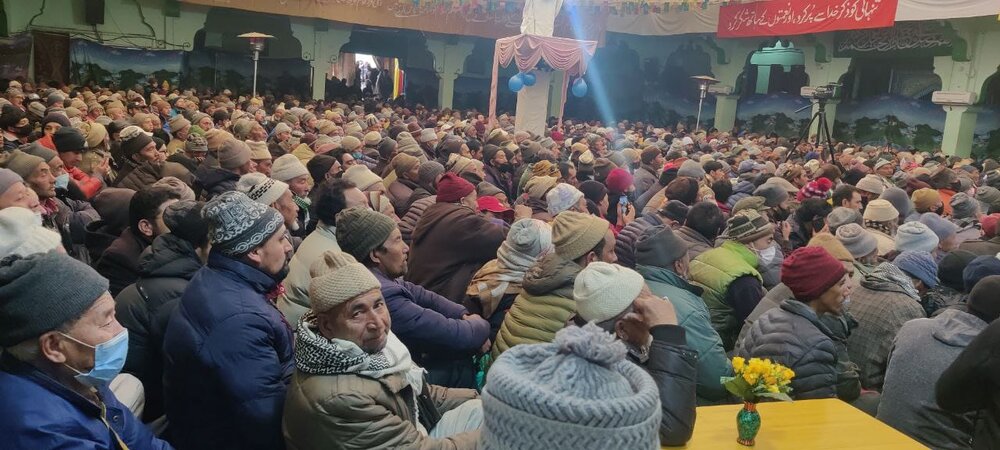
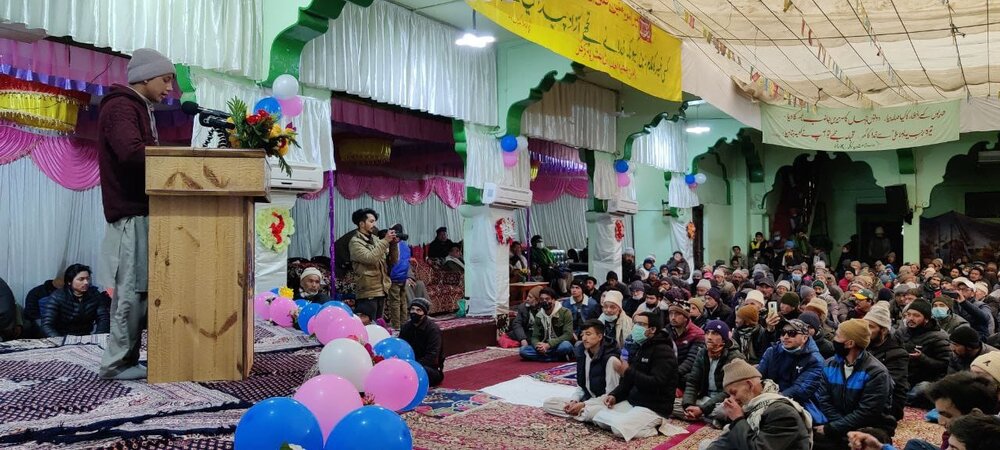
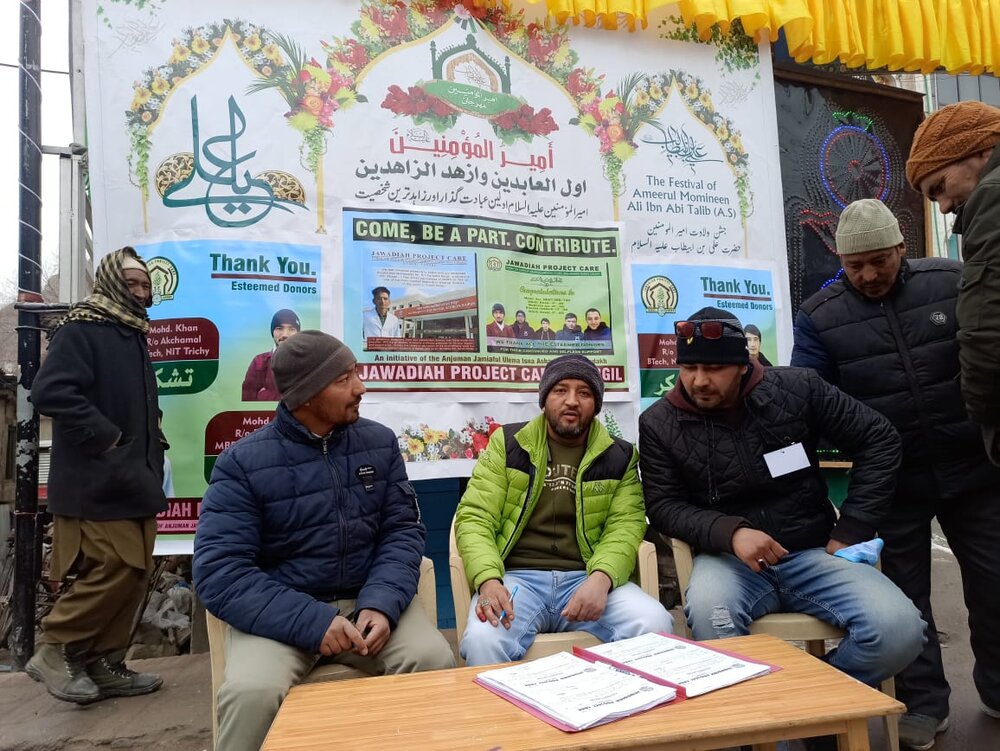
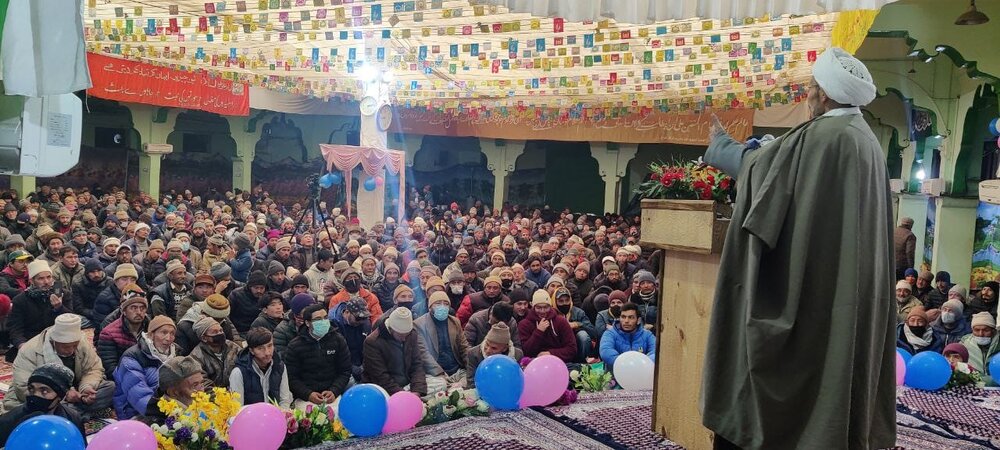
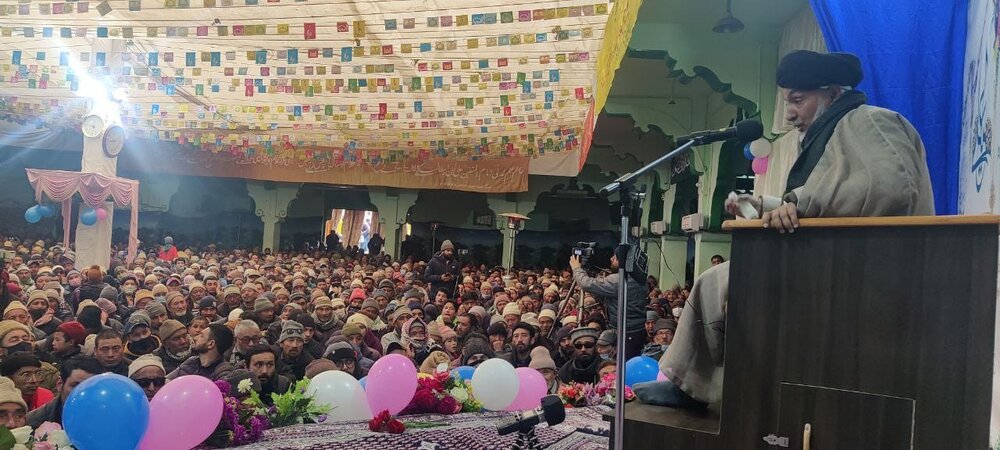
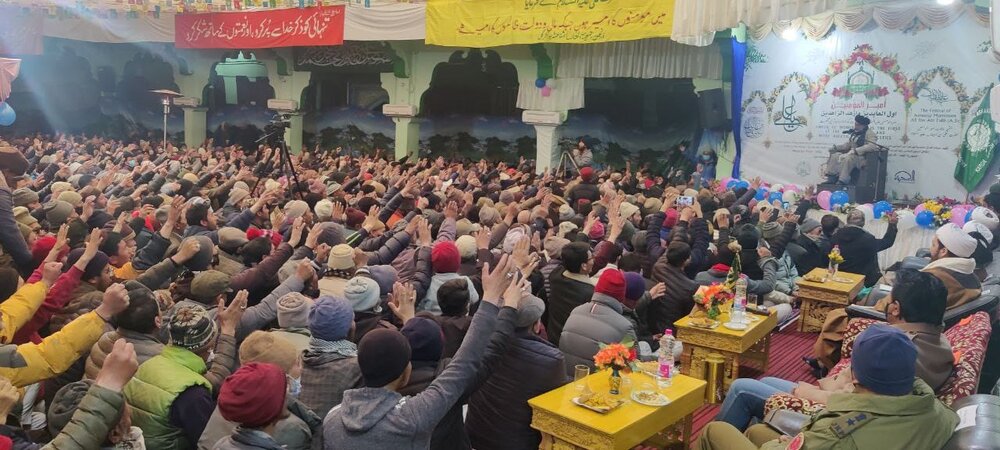
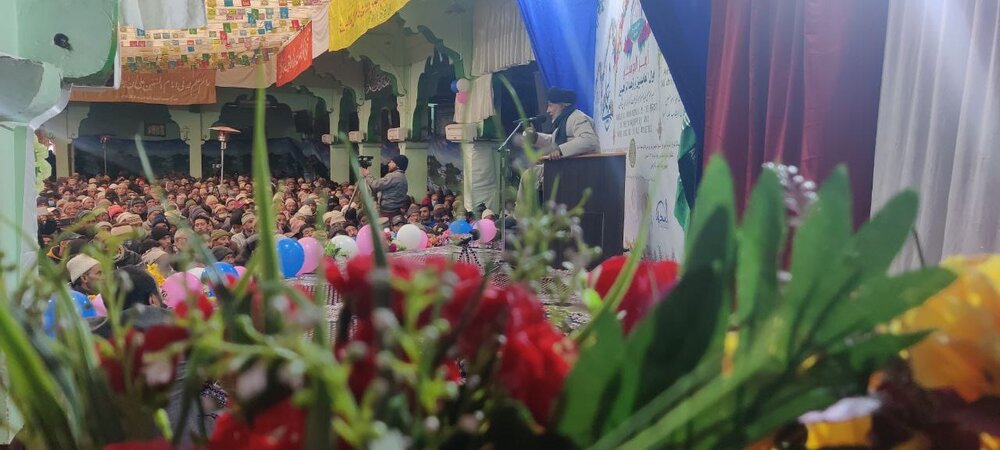

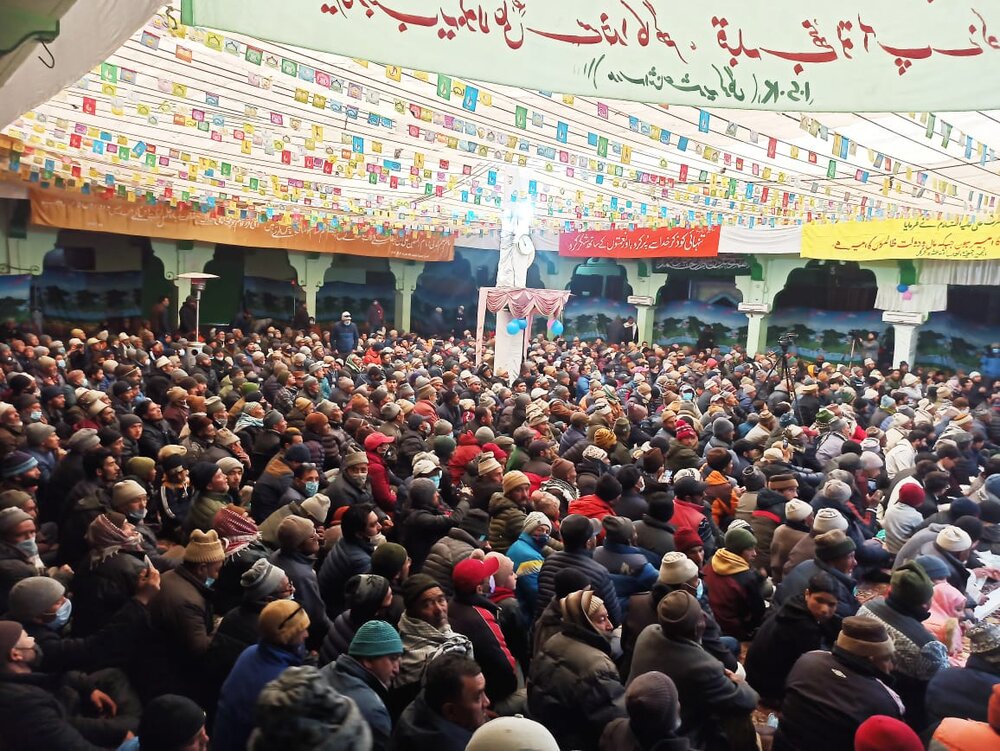
Your Comment